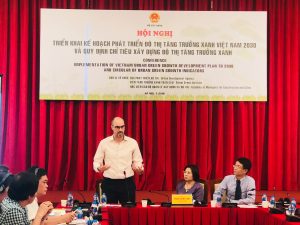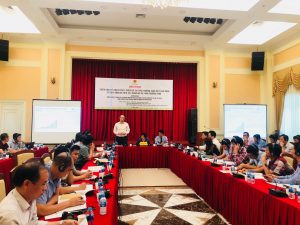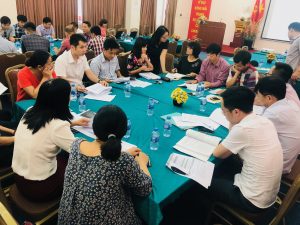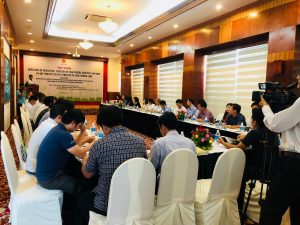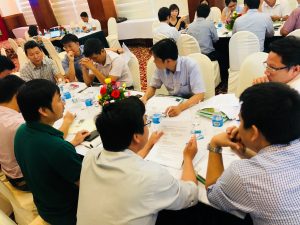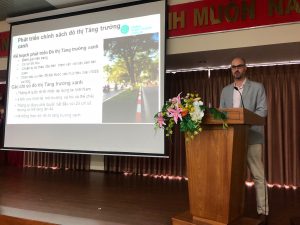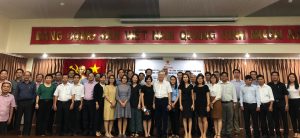Ho Chi Minh City, September 27-28 – The Ministry of Construction (MOC) – the Government of Viet Nam in collaboration with the Global Green Growth Institute co-hosted a “Conference on implementation of the Viet Nam urban green growth development plan to 2030 and Circular on Urban Green Growth Indicators”, under the series of events in Northern, Central and Southern regions, Viet Nam. The conference was co-chaired by the Vice Minister of Construction, Phan Thi My Linh, Dr. Tran Quoc Thai, Deputy Director General, Urban Development Agency, MOC and Mr. Adam Ward, GGGI Viet Nam Country Representative. The series of conferences were attended by around 200 key government officials, decision-makers from 63 provinces throughout the country.
Early 2018, the Viet Nam Urban Green Growth Development Plan 2030 was approved by the Prime Minister with the main objectives to promote urban economic development towards green growth, to improve competitiveness, to assure quick, effective and sustainable development of the urban economy, to create jobs and alleviate poverty and hunger, to improve physical and spiritual condition of the people, to improve resilience to climate change of the urban network and to reduce greenhouse gas (GHG) emissions. Hence, the conference was aimed at (i) disseminating key urban green growth policies (ii) Building capacity of government officials on urban green growth and implementation of the urban green growth indicators and (iii) identifying priority actions for cities on urban green growth.
Following the conference, a training workshop on: “Circular No 01/2018/TT-BXD, Urban Green Growth Indicators” was held by MOC and GGGI. The approved Circular document is the outcome of GGGI’s research conducted for MOC was presented during the workshop. Tracking of these indicators will enable decision makers to effectively identify critical knowledge gaps, facilitate data comparison, identify trends, benchmark performance, guide policy actions, and gauge impacts. The indicators chosen were based on a desk review of international best practice, analysis of the current context of Viet Nam and discussion with cities. The workshop shared the lessons learned from the application of the indicators in three pilot cities as well as ensured other cities understand how to apply the indicators and provide annual reports to MOC.
Mr. Ward said “Vietnamese cities are rapidly urbanizing providing economic opportunities to millions, however with this rapid urbanization comes a number of challenges in terms of traffic congestion, pollution and impacts from climate change. It is crucial that Viet Nam’s cities develop in a green way – a way that ensures sustainable inclusive development. This conference will provide city leaders and officials with the knowledge to track the implementation of green growth in their cities, as well as to identify what actions suit their local context, making urban green growth a reality in Viet Nam”.
